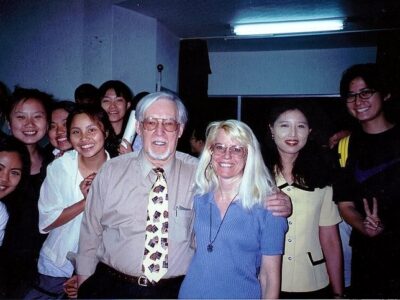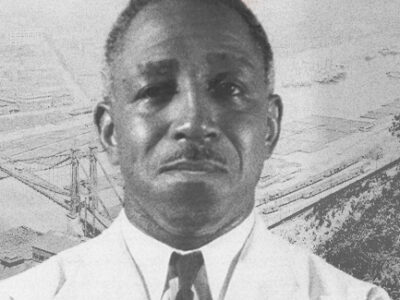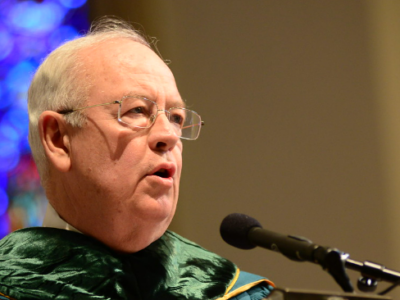I was quite saddened when I woke up on Thursday morning, turned on Channel 4 and learned that Fred Rogers had died. Mr. Rogers had always evoked sentimentality from me, though never as he did that morning.
I’ll always have an almost saintly image of the man. One day as a student at Pitt I was shopping in a Giant Eagle in Oakland and passed him in one of the aisles. I smiled and he smiled back. I checked out and left with my groceries. It occurred to me I should go back in and thank him. I tried but couldn’t find him.
I wanted to thank him for what he meant to Pittsburgh and even to the country. He was an American institution. I also wanted to thank him for always being there in my life. I was born in 1966. As long as I can remember, Mr. Rogers was there in my living room. He never left. He was always there. Always.
Now, I have children of my own. Unfortunately, my two little boys ask me to change the channel when Mr. Rogers Neighborhood comes on at 8:30 AM on WQED. They have a favorite show on another channel. (There are so many more choices today.) I feel guilty as I grab the remote. I always pause a moment to at least watch Mr. Rogers stroll in singing his song. It brings back pleasant memories.
And I think that’s what Mr. Rogers meant to many of us. He made us feel comfortable. He was a sweet man, almost grandfatherly in his senior years. Who couldn’t like him?
I have just one story I’d like to share about the man. It was told to me by my pastor at a church in Bridgeville a few years ago. In a way, it is symbolic of what Fred Rogers meant not just to kids but Pittsburgh.
My pastor had a friend, a deeply religious businessman who lived in Connecticut. He had become quite successful but felt he was being called to make a career change. He shared this feeling with his likewise devout wife, who was far from enthusiastic. They agonized over the thought. She and he loved their home and community, and so did their children. They repeatedly prayed about the decision. They decided he should at least send out resumes to consider options. They resolved that the matter was in God’s hands. Still, she hoped God would keep them in Connecticut.
Her husband had a number of strong interviews all around the country, including in Pittsburgh. He was most attracted to the Pittsburgh job. That was not the news his wife wanted to hear. She had never been to Pittsburgh and had heard only negatives about the alleged smoky, polluted, backward city.
The company requested that the entire family be flown in for a visit, hoping to persuade them. His wife was not thrilled. She prayed for some kind of sign from God, thinking the idea of moving to the steel city couldn’t be right.
When they got to the airport, she initially thought she received that sign – a big no. The couple’s young son had vanished. Frantically, they ran around the unfamiliar airport yelling his name, crying. Finally, the mother observed the child speaking to a man in a long overcoat. She assumed the worst. She dashed over to grab the boy’s hand and yank him away from this thin figure. But then she recognized the man’s face. It was no less than Mr. Rogers, that nurturing captain of the Land of Make-Believe. He softly explained to the mother that her little boy, who he identified by name, had expressed concerns about moving. In that slow, caring demeanor, he gently told her that he explained that moving can be difficult, but that sometimes it’s for the better, and parents do it for the best of the family, that he would make new friends, and so on.
That seemed like quite a sign. If God were to send the perfect ambassador for that situation at that moment, who would be better than Mr. Rogers’ What better representative than this gift to America’s children?
The family moved. They soon learned that Pittsburgh is a very nice place to live.
Rogers, for the record, was an ordained Presbyterian minister. He considered it his mission to reach children and their families through the medium of television. In this case, perhaps an answer to a prayer, he was yet again practicing his ministry.
This city owes a debt of gratitude to Fred Rogers, as does the nation as a whole and its children past and present. Thankfully, through the magic of television, he can always be with us.




